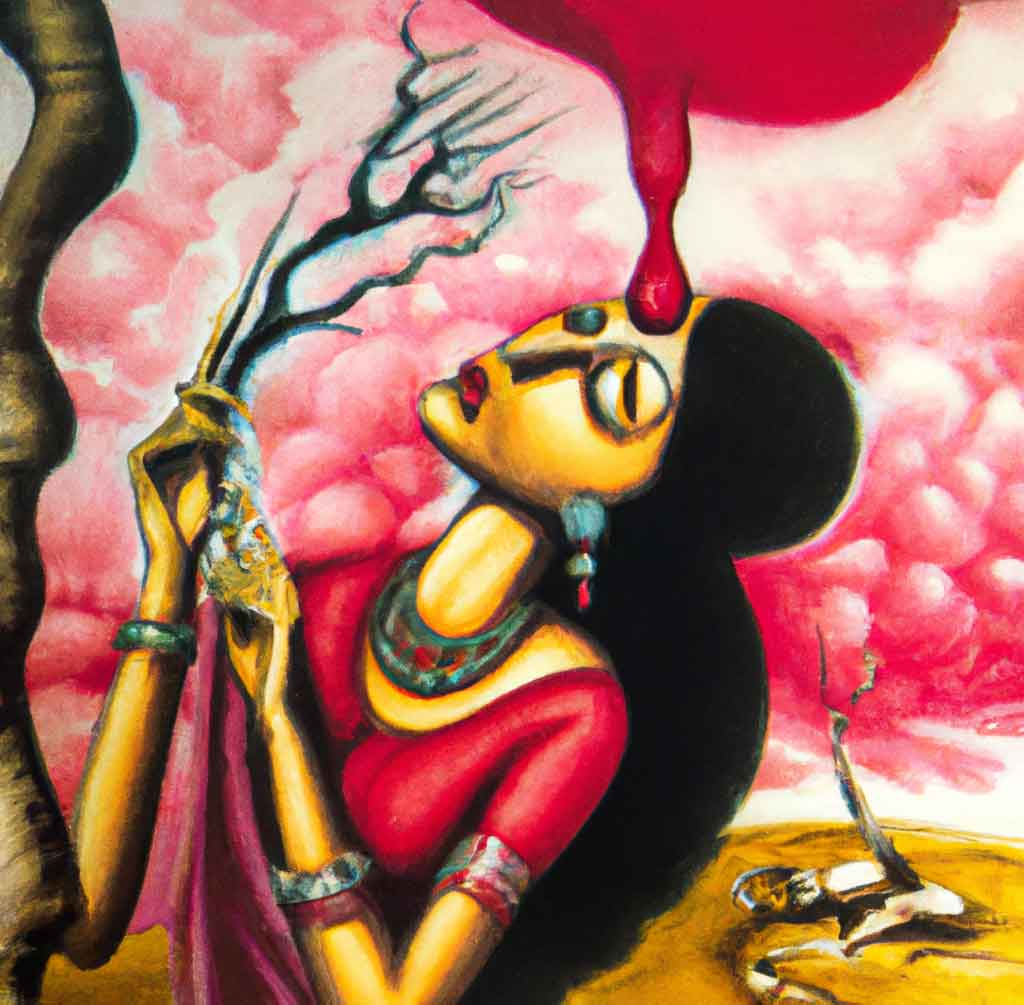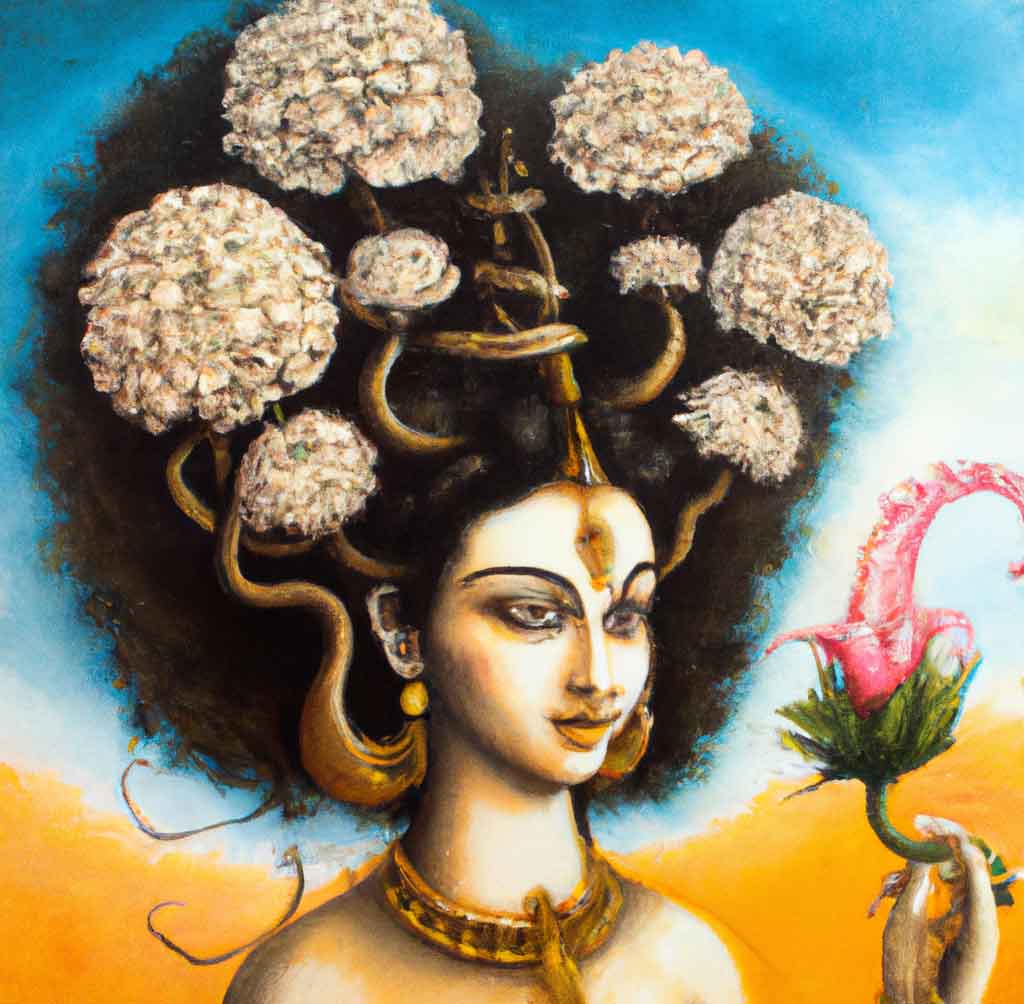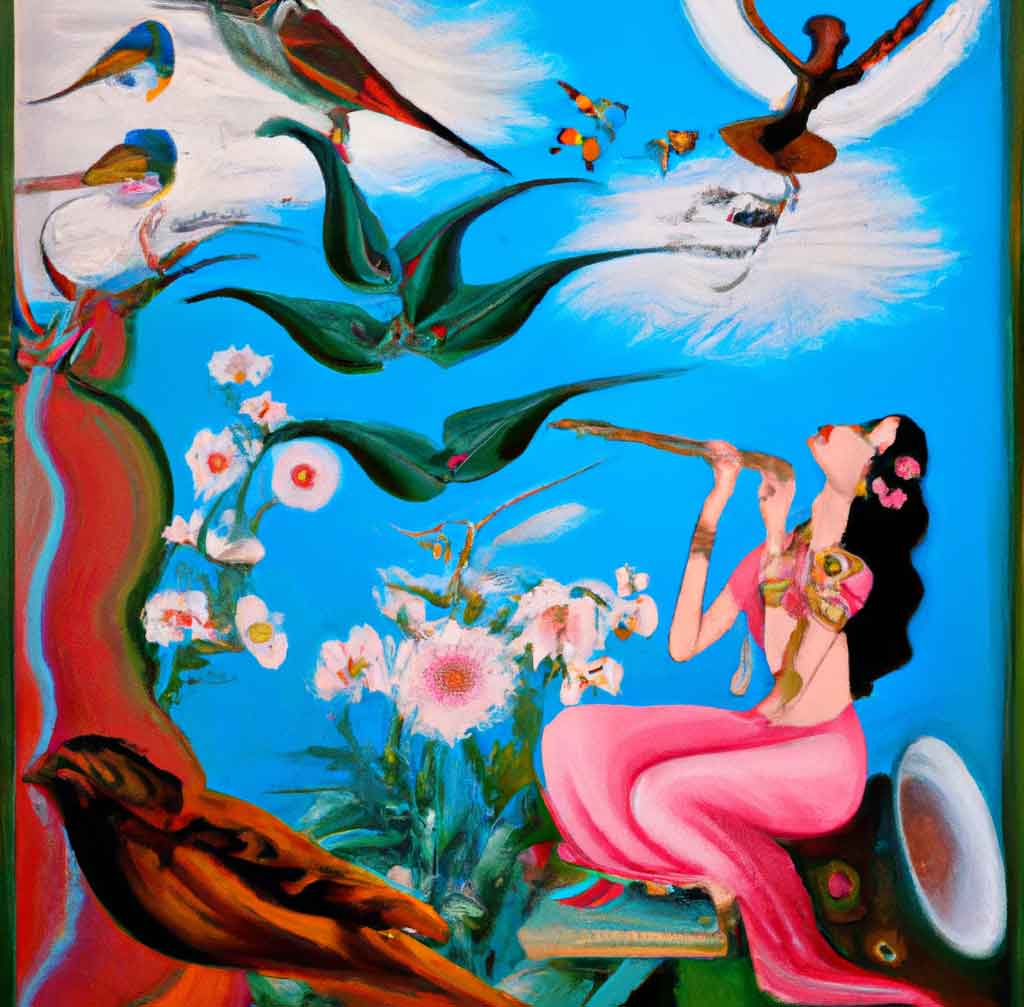I typed ‘menstruation’ into Dall-E to try generate an image depicting that time of the month because I believe this is a relevant topic to write about as a life coach. ‘It looks like this request may not follow our content policy’, was the error message I received in return. This gives me even more clarity as to why I really need to write this blog post!
Seeing Red
Let’s get real. Most people with a uterus within a specific age group bleed. Every month. Without fail. It’s probably not the most joyous or invigorating time of the month for most of us, but it’s a fact of life. That is one of the consequences that come with being born with female reproductive organs. It’s a fact of life for 50% of the earth’s population, so how on earth can it be that something just as natural as taking a shit is still shrouded in taboo? Let’s break the silence and start talking about menstruation openly, and without shame. It’s bad enough that we can’t talk about menstruation with our peers, partners and parents, let alone be made to feel like we’re doing something wrong by making an internet search!
I saw a post on Instagram recently from Rupi Kaur, the renowned Canadian poet who I absolutely adore. She posted an image depicting menstruation and period cramps, and went on to explain how after posting that same image back in 2015, she received comments about how it was ‘disgusting’. Needless to say, the image was quickly removed from the platform back then. WTF? Is it any surprise that I’m seeing red? This is an absolute disgrace and makes me doubt humanity! Are we actually backwards as a human race? Why did Instagram remove the image, and why did people (namely men) find this image gross?
I’m bloody furious.
(Wo)menstruation
It’s funny isn’t it? We’ve heard all the terms work MAN, MAN kind, chair MAN for so long – a blatant sign of the inequality that women have been subjected to for such a long time. But when it comes to our periods – something that people who are born without a uterus cannot and will not ever experience, men still own the word! Let’s claim it back. Let’s celebrate our womenstruation! (This is not to exclude anyone who bleeds but does not identify as a woman. It’s a pun – simply for my own amusement. Good intentions only -ok?)
So as I was saying, it’s time to break the barriers surrounding womenstruation. For too long, periods have been seen as something dirty, shameful, or even gross. It’s a natural part of life, yet many people feel embarrassed or ashamed when it comes to talking about it.
One of my closest friends WHISPERS the word ‘period’ every time she talks about it. It’s an ongoing joke, and we laugh about it. But deep down, I think she knows why it’s important to train ourselves out of the shame we’ve been made to feel when talking about menstruating. We need to create a new habit to stop whispering words that relate to nature. Instead we should be shouting it from the rooftops if we want to.
We can all help each other here, and the best way really is to just have a conversation about it. Hence my rambles.
Menstruation & Cultural Barriers
As a life coach, I specialise in coaching women of colour to help them break down barriers relating to culture and expectations. Menstruation is an interesting topic to discuss here, as in many cultures (including the one I was brought up in), talking about periods is just a no-go.
When I was younger, I wasn’t allowed to touch or pray at my grandma’s shrine if I had my period as I was apparently ‘unclean’. I used to find this really hurtful and offensive, but I couldn’t really vocalise why. Well – now I understand that somehow, I was being stripped of my womanhood. I wasn’t allowed to celebrate this natural part of having female reproductive organs… rather I was supposed to hide away from it in shame.
No god of mine would ever make me feel ashamed or embarrassed for something they apparently created. Needless to say, now I’m an atheist who celebrates my monthly bleeding down to my very core. I touch things, swim, revel in joy and dance wherever I want, whenever I want – period.
Menstrual Health Matters
I’d like to acknowledge that in some parts of the world, celebrating ones period might not be as easy. This cultural taboo can have serious consequences. Girls in many parts of the world are forced to miss school when they have their period, simply because they don’t have access to proper sanitary products or because menstruation is seen as shameful. This is not only unfair, it’s also a violation of their basic human rights.
To be completely honest, I’m not sure what to do or say about this. But I do know that we need to break the taboo.
It’s time to change the conversation. We need to start talking about periods without any stigma attached to it. This means educating both men and women about what menstruation is, how it works, and why it’s a natural and important part of life. We need to make sure that young girls are taught about periods in a way that is positive and empowering, rather than shameful or embarrassing.
Periods: Not Just a Women’s Issue
As I reflect on my school days, I vividly recall the stark contrast in our sex education classes. The girls were corralled into one room and taught (very little about) menstrual cycles, sanitary products, and birth control.
Meanwhile, all the boys were rallied up by a male teacher to be taught about… well – goodness knows what. But one thing was certain- there was no mention of a period in that testosterone filled classroom.
It’s frustrating to see periods constantly painted as a “women’s problem”. I want to make two things clear:
- It’s not a problem. And it wouldn’t seem like one if we were better at having a conversation about it.
- This is not something that solely affects women. As members of the human race, we are all impacted by the ins and outs of menstruation.
This is not just a matter of fairness and equality; it’s a matter of emotional intelligence and growth. If we deny our children the chance to learn about the nuances of menstruation and its accompanying challenges, we’re denying them the opportunity to develop empathy and understanding towards those who do experience it. Just as feminism isn’t just a women’s issue, neither is menstruation. So please – get with the program.
Let’s come together and shift our approach. It’s time to speak openly and transparently about menstruation, and for everyone to take responsibility for learning and understanding this shared human experience.



